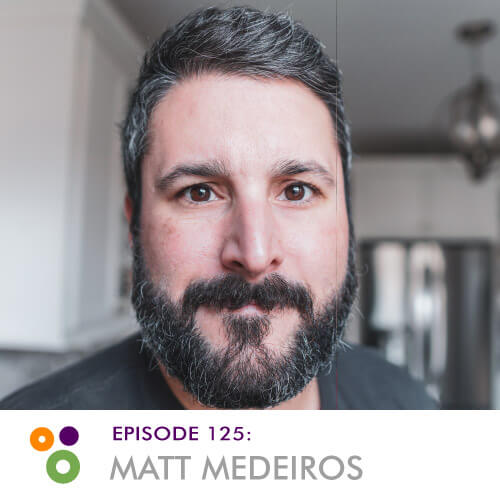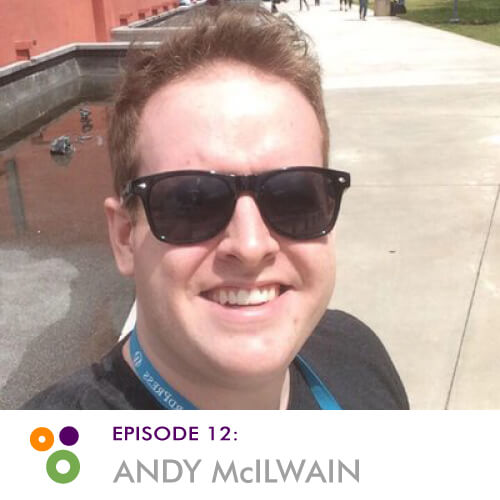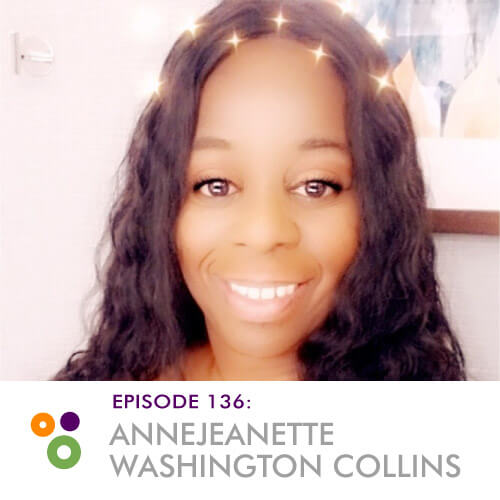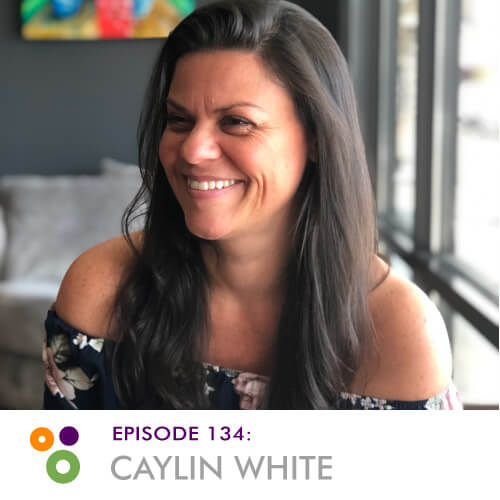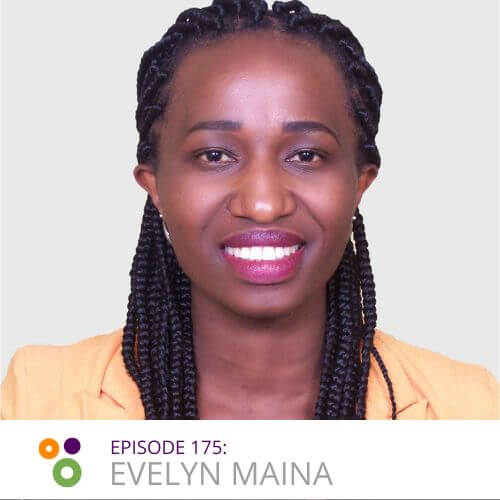Episode 119: Keanan Koppenhaver
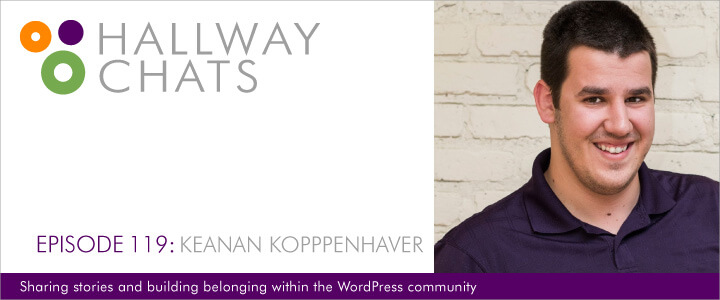
Podcast: Play in new window | Download
Subscribe: RSS
Introducing Keanan Koppenhaver
Keanan is the CTO at Alpha Particle, a digital consultancy that helps their clients plan and execute their digital projects. He believes that technology isn’t always the answer, but when it is, it’s important to get it right.
Show Notes
Website | Alpha Particle
Website | Keanan.Dev
Twitter | @kkoppenhaver
Preferred Pronouns | He/Him
Episode Transcript
Tara: This is Hallway Chats, where we meet people who use WordPress.
Liam: We ask questions and our guests share their stories, ideas, and perspectives.
Tara: And now the conversation begins. This is Episode 119.
Tara: Welcome to Hallway Chats. I’m Tara Claeys.
Liam: And I’m Liam Dempsey. Today, we’re joined by Keanan Koppenhaver. Keanan is the CTO at Alpha Particle, a digital consultancy that helps their clients plan and execute their digital projects. He believes that technology isn’t always the answer, but when it is, it’s important to get it right. Hi Keanan.
Keanan: Hey, Tara and Liam, thanks for having me.
Tara: Nice to see you, Keanan. Thanks for joining us. Can you start out by telling us a little bit more about yourself?
Keanan: Sure. Like Liam said, I’m Keenan, I run a company in Chicago here. We’re in the Merchandise Mart for those of you who know the area and currently enjoying a very mild winter, which is great. I hope I didn’t jinx anything by bringing that up now.
I’ve been in the WordPress space for six or seven years. I really enjoy it. I enjoy getting to know the community and the people in it, which is why, Tara when you and I were talking about Hallway Chats, it was really interesting community that you kind of gathered this community around your podcast. So I’m happy to be here and talk to you guys.
Tara: What is your journey to WordPress?
Keanan: I kind of on a lark in college decided I wanted to build a website which of course I thought was going to be the next billion-dollar thing. I didn’t really know anything about it, so I started just kind of googling like “how to build a website” and stuff like that, and very quickly realized that there were already lots of tools to help people do these sorts of things.
I experimented with a couple of those on my own but then ended up taking an internship with an agency here in Chicago that was primarily a WordPress shop. So most of what they did was WordPress. Throughout the course of my internship and when I eventually took a full-time position with them, day in day out was WordPress, working in client sites and things like that.
I found it really interesting as a platform and really powerful and able to help people work on the web on their own without necessarily needing a developer like me, which is super empowering for clients and people who run their own businesses and things. I never looked back at that point.
We still do a lot of WordPress, but also we’ve been expanding into other PHP frameworks and things too. But really what stuck with WordPress for me was how easy it was and how powerful it was for people, but then also the kinds of people that were involved in the community like we talked about a little bit, who spend a lot of their time giving back and helping other people come up behind them and get started doing the same thing.
Tara: Alpha Particle, are you one of the founders of that company?
Keanan: Yeah. It’s myself and my business partner, Jay. We started the company in May of 2017 so we’ve been around just about two and a half years. Initially when we started the company, especially if you were looking around searching for an answer to a WordPress problem or looking at me personally, WordPress answers will be what would back in Google. So that’s why a lot of our early work was WordPress. We still do a lot of that at our core, but we also have expanded into digital strategy and things that aren’t necessarily code as well.
Tara: What was your transition to starting your own company?
Keanan: Jay and I have worked together previously a couple of jobs ago and I kind of went off and was just a pure developer for a while. But a couple of years after we parted ways at our last company, he approached me and said, “Hey, I’m interested in starting my own thing. I’d really like for you to come on board and work with me on it.
He and I get along really well. We always have. We do even more so now I’d say after sharing some Airbnbs early on in the company days. But I really enjoy the fact that we’re in control of our own destiny in a lot of ways. We can choose the kind of clients we want to work with, we can choose where we think we have the most impact. We have the capability to say, “Hey, we know that somebody told you that WordPress would be good for this project, but we don’t really think that’s the case” or “Have you considered WordPress? We think it’d be really good for you.” We just like having the ability to make those decisions and advise our clients in that way that we didn’t necessarily get to do that before when we were employees.
Liam: There’s a lot of change in the WordPress environment right now with respect to the CMS. We had Gutenberg about a year or so ago, we’ve been getting Gatsby at a lot of static sites and there are some challenges with the community. We’re seeing other content management systems come up. At the risk of going too deep because that’s not really where our show focuses, what other platforms are you using in? And could you talk a little bit about why this platform or that platform is a strength over WordPress for this type or that type of client need?
Keanan: Sure. We’ve started to get relatively deep into the Laravel ecosystem. Laravel, for those who don’t know, is a PHP framework. It’s not as focused on content management per se, but they have a great package called Nova, which kind of gives you an admin area that’s similar to the WordPress admin. But it’s a lot more customizable. The reason we choose Laravel and that sort of stuff over WordPress is you get less out of the box but you’re also able to make more easier, to make things like associations between objects, which in WordPress would be considered post types I guess.
For a couple of our clients that have wanted more of a web app as opposed to a blog or a content site, we’ve chosen Laravel. We end up bringing in the CMS portion of it too because there’s always some need to manage content. But we really like that. We’ve only just started to get into the static site stuff.
It’s interesting to me how things are cyclical such that when the web started, everyone’s just like building HTML pages and all that stuff. And now it’s kind of going back to that after having gone super heavy into like, “Oh, everything comes with database,” and all that.”
We’re really liking the stuff that we’re seeing with React and Gatsby just because obviously, it’s great to have your site load quicker than you can snap your fingers, and the interesting hybrid between getting that performance and still being able to edit your content in WordPress.
The downside there that we’ve seen is it’s a little more work to make it work if you’re building a site that has a ton of content on it just because a lot of those workflows are based around like constantly having the site rebuild whenever you make changes. For some of our clients who are publishing 15 to 20 posts a day or they have five different writers that are putting content up, we’ve looked into it and haven’t been able to use that. But WordPress definitely supports that as well, and you can do a lot of stuff with caching and stuff like that.
That’s kind of our thing is we’re not necessarily prescriptive when we use the same tool on every project. It’s kind of like we want to talk to you as a client and see what problem you’re trying to solve is. We like having a lot of different tools in our toolbox for that reason.
Liam: That was a good answer. Thank you for that. Tara, I see you fired up a question?
Tara: Well, I was going to actually kind of back up a little bit more before we get too far down technology and chat a little bit about having your own business and doing the variety of things that you’re doing. How do you go about getting clients?
Keanan: It depends. We do a fair amount of referral business. Chicago is a big city but the tech scene in Chicago is relatively small, especially for the kind of work that we do. There are two or three meetups that we attend pretty regularly. We speak pretty regularly at those. We have a pretty broad network of people from those kinds of events. They’re happy to have us work with that potential client because they know it’s a win for them to have referred somebody. They want the project to be successful, even if it’s not them who’s taking it on.
We do a fair amount of speaking in other cities at other conferences, so WordCamps or even conferences like in the broader PHP community. I personally just really enjoy traveling and speaking and meeting people.
I have random YouTube video tutorials or things that are scattered around the internet that are every once in a while. Someone will email me and say, “Hey, this solved my problem. Thank you. But I know I’m going to have other issues on this project. Are you guys available for code review or consulting or stuff like that?”
It’s kind of we have a lot of different methods and sources for work. Some of them are better than others. And so we’re trying to grow those that are getting us good clients and getting us the kind of work and the outcomes that we want. That’s been how we’ve done it for the past couple of years.
Tara: Since you are on the higher level dev end of things, are your clients mostly agencies?
Keanan: We do a lot of work for agencies. We do a lot of work for bigger publishers in the WordPress space. We recently just wrapped up a project for Penske Media. They wanted a plugin built out. They have devs internally, but they were booked up with other projects. And so they said, “Hey, could you guys come in and build this plugin?” And we did.
It took some of their code that was already running and just kind of packaged up so they could roll it out across a bunch of other sites. That’s right now it’s running on sites like Footwear News and Rolling Stone, and a bunch of their properties.
Because the bigger agencies and the bigger publishing shops and stuff like that are the ones who really are more invested in custom development, we do a lot of work for people like that. But also our friends who are freelancers, a lot of them really specialize in themes and doing stuff on the front end. And so if they get a request from one of their clients, like, “Hey, can you build me this plugin?” sometimes we help them out and do the plugin stuff that they’re not necessarily as adept at doing. That goes to the way to if there’s really a project that fits right up their alley and that’s not necessarily our proficiency, we’ll get that done as well.
Tara: How do you divide up work with your partner? How do you guys work together?
Keanan: Jay has a pretty heavy background in project management and business operations. So it’s really nice for me. I’ve tried freelancing just on my own a couple of times in the past and the things that bogged me down were figuring out contracts and making sure I’m doing all the HR stuff properly. He’s really great at that and really great at managing projects that they come in and interacting with clients, making sure everyone kind of knows what’s going on. The stuff that falls to me is the actual coding.
Liam: Keanan, tell us a little bit of how you first got involved with the WordPress community.
Keanan: Sure. Back when I was working at the agency job here in Chicago, we were a WordPress VIP partner. We were working on really big WordPress projects, like a lot of these other agencies you hear about 10up and Human Made and others. But I noticed that they were sharing their work via open source, they were speaking at conferences and doing all that stuff, but we weren’t necessarily doing the same. And so I thought we could benefit from that.
I kind of just raised it as a question to the company, like, “Who would be interested in doing this?” But developers as a general rule aren’t super psyched about going and speaking and all that sort of stuff. So everybody just looked at me and said, like, “Okay, well, you could do that.” That’s how it started.
I started applying to speak at WordCamps and just going and meeting people. They were all in cities that I hadn’t known anybody in previously so it was really cool to be able to get involved with the local WordPress communities there. I think what sealed it for me was then after I had gone to all those local events, going to WordCamp US my first year back when it was in Philadelphia and seeing all these people that I had met at the local camps and it was kind of like a real in a lot of ways, which is pretty cool, and seeing kind of the bigger community come together was really awesome for me. I’ve been engaging at WordCamps, speaking at WordCamps and going to WordPress events ever since.
Tara: We met at PressNomics, right?
Keanan: Yeah, PressNomics done in Tucson this year, which was really cool. That one was one I had heard about in the past and never been able to make it to. So when it was announced this year, I told Jay, I was like, “Yeah, let’s buy tickets. We’re going to go because I heard this going to be awesome.” And it was cool.
I really enjoy the WordPress community. I have a lot of great friends online and some that I’ve been able to meet in person, which is really cool. Jay and I both are on the organizing committee for WordCamp Chicago next year. So we’re hoping that a lot of that same energy comes to us here in Chicago as well.
Tara: Great. Well, maybe I’ll get out there for that one. Keanan, I’d like to ask you kind of get off direct business and tech, although you may come back to it with your answer, but I wouldn’t ask you about success. What can you define success as what it means to you?
Keanan: I think we chatted about this a little bit earlier that there’s kind of professional success versus personal success. Those are two different things to me I think. Maybe because I enjoy the work that I do, they’re more tied in for me than most people.
Professionally, I think when you start your own company, or whatever, you kind of have this idea that it’s going to be the next huge thing or you’re going to sell it for $20 million and retire or whatever. But now, for me that I’ve been in it, I think, success is really that we’re able to keep the lights on and keep everybody who we want to work with employed and be able to work with the people we want to work with and do work that we can really be proud of.
When you run your own company or you work as a developer, whatever, you get a lot of awesome opportunities that you wouldn’t necessarily get working in other industries. Things like going to conferences and taking trips to see clients and things like that. I’m really excited and happy that we’re able to do all that as part of our company. So I think that success is seeing where we are and not necessarily shooting for 20 million or 50 million or whatever number it is, but just kind of gradually improving and feeling proud of the work you’re doing day-to-day at the same time.
Personally, I’m very lucky to have an apartment that I love in a city that’s awesome and lots of friends to hang out with and a cat who walks across my keyboard way too often and is fun to hang out with even when he’s being very annoying. For me, that’s the kind of stuff that’s important and makes me feel successful even on bad days and days that aren’t going so great.
Tara: I had a cat that would not get off my keyboard yesterday. I can relate to that. I’m not sure I would describe that as being a pleasant experience, but the cat at times is pleasant. That’s true. I think Liam and I both can speak to a passion for Chicago. Liam probably more than me because he grew up there, but I lived there for a bit as well. It’s a great city.
Liam: Pizza, Italian sauce, beef Campbell with cheese and hot peppers.
Keanan: There you go. Those are your credentials established right there. You got it.
Tara: Which pizza?
Liam: Susie’s on Montrose before 4 am. It’s an all right roll.
Keanan: Which pizza was the question. My family always went to Geo Donalds when we were growing up so that’s one of my favorites. But I like it all as well.
Liam: Yeah, you can’t go wrong with Geo Donalds. I’m a lose guy myself.
Keanan: I was just there last weekend, so I feel you on that.
Liam: Now you’re just showing off. Pizzaaa. Pizzaaa
Tara: I’ve been known to take those on the plane coming back east. And get them so you can cook them at home.
Liam: Keanan, you touched on something in success around – and I’m not going to get a verbatim – but success is being able to continue to employ the people that you want to work with. As an employer, I imagine that’s a burden. You and Jay are seeing, “Hey, this is our pipeline. This is our cash. This is what we’ve agreed to pay the other people that work for us. We can take more or less out of the company as we need. We can skip paying ourselves, but we can’t do that with our people.” That’s just not going to endear them well to you and it’s not going to take care of them in the way that you probably want. How do you manage the stress of that? Because every successful business even though it’s doing well it’s all down to cash. Not so much how do you manage the logistics of money. I don’t want to get into that. But I really want to get into the how do you manage the stress of making sure that dinner goes home on the table of your employees regardless of what’s coming in the door that week?
Keanan: For sure. I mean, when you look back at when we hired our first full-time person, we were relatively conservative. We honestly probably could have hired someone sooner and taken some of the street dev work off of my plate sooner. But we had a lot of conversations around. We really wanted to be sure that we felt we had the brand recognition, the pipeline, and all this stuff to keep the work flowing in even when we had commitments and full-time employees and stuff like that.
I think the biggest thing for us and how I look at it is we’ve been around for two and a half years, we’ve been through a lot of cycles of we have a ton of work and then we finish that work and we have no work. We’ve just seen that we either have people we can reach out to or through luck or coincidence or whatever, when we’re running out of work, we get a referral comes in. That’s a big win for us. Things like that.
It definitely is stressful at times, but we just do our best to show up every day and do good work and proactively make connections and things that could help us if we get into kind of trouble periods. But like you said, things ebb and flow. And we’ve seen enough of those that it kind of every time we’re down in a trough and we come back up out of it, it kind of increases our confidence, like, “Yeah, there are things we can do even if we get in a rough situation.”
Having a bigger team has actually only helped us smooth that out. Because before, when we took on more work, we’d stopped doing marketing, we’d stop doing outreach because we were just heads down in the work. But now that we have people to help us with the actual work, Jay and I can continue to do some of that outreach and marketing and we have a lot of project work going on.
I think it’s kind of a flywheel where it’s definitely hard at the start because you’re seeing all that fluctuation and you don’t have a business savings account necessarily to fall back on or anything like that. But I think as we go, we’ve seen those peaks and troughs come and go and we have the confidence internally to know that if we’re in a trough right now we’ll be able to find another peak sometime shortly.
Tara: Do you guys have like a five-year plan or business plan for years out of where you want to be?
Keanan: We’ve talked about it. We don’t have anything formal or written down. We always have at least the next year kind of sketched out in terms of, you know, here’s the work we want to do, what kind of revenue numbers are we trying to hit or are we trying to bring on more people or we want to stay where we’re at.
We have a vision for the company. It’s not point by point here’s what we have to do every three months for five years out. I’d love to I love to see us grow into not a huge agency. We’ve talked about seeing ourselves between maybe 10 and 20 people just kind of here in Chicago, some people are remote or whatever, but just really focused on doing the work that we want to do and helping support the people who are helping us do that work as well.
Tara: You’ve talked about a little bit about some challenges. What is your biggest challenge day-to-day? This extends into my personal life as well but I would say probably saying yes to too many things. This is a big one for me where…and the couple times that I talked about before where I tried being a freelancer and then ended up going back to a full-time job was because I would just say yes to every project or every opportunity, even if it wasn’t a really good fit for me, and then I would get overbooked and things will get crazy. That’s a good problem to have normally, but at some point, it can be a lot.
I think especially when you’re starting out and doing new business, there are so many different things that you could be doing. I’ve had to try to focus on like, “Here are the three things that are actually going to help us get where we want to go and actually move the needle as opposed to just things that are interesting, but end up being busy work or just not actually meaningful, things for our business. I guess that extended to my personal life as well. I have a lot of different things going on. In 2020, one of my goals is to focus a little bit more and kind of do this stuff that I want to be doing not do the stuff that I just said yes to because I felt like I should.
Liam: Keanan we’ve talked a lot about work. What do you do when you’re not working?
Keanan: Well like I said I have a cat at home. He is very demanding of my time and likes to hang out which is great. I like, like I said, traveling for work and not for work as well. I like traveling around the country. Hoping to have a couple more international trips and in 2020. So we’ll see.
I also just like hanging out in our awesome city. We have some really cool restaurants and neighborhoods to hang out in. Like walking or hanging out down by the lake in the summer is really nice. Not so much in the next couple of months here as we get into January in February but I split my time between doing stuff like that. My family’s out in the northwest suburbs just about 45 minutes away so I’m very lucky to be able to get out and see them and play in the church band that my dad runs and stuff like that. I love music, which was almost my college major until I transferred sophomore year.
Tara: What do you play?
Keanan: I primarily play the piano. I do a little bit of guitar. My college instrument was French horn. That’s what I played from fifth grade all the way up through college. But now it’s more just piano and stuff. You can look me up on Spotify if you’d like.
Tara: All right.
Liam: Totally going to.
Keanan: We got two pieces from college up there and one that I did as kind of a summer camp with a trio of instruments.
Tara: So cool. That’s a good one. I remember when my son started playing it, he was told that – not that this matter to him, I guess – but that colleges are looking for people who play the French horn, so that seemed appealing as a parent.
Liam: I want to ask you about advice, Keanan. What’s the best advice that you’ve ever been given or read or taken on board anyway, and successfully implemented in your life?
Keanan: Well, this kind of comes through in my bio that you read earlier a little bit. Both my dad and my grandpa would always say growing up, just because you can doesn’t mean you should. It was always their thing when they’d see a new something in an infomercial or whatever, and they’d say, like, “This device lets you cook 20 pancakes at the same time,” or something like that, and they’d say, “Just because you can doesn’t mean you should.”
That’s definitely something that we’ve taken on board at Alpha Particle and in my personal life as well. We’ve heard from our clients that a lot of our competitors when they’re pitching the same work that we’re pitching, say, “Okay, we’re going to take your website, and your tech and throw it out, we’re going to rewrite it in React and do all this stuff.” And to a lot of people who have built up a business, that’s pretty intimidating.
What we try to do is work with what they’ve got, work within the bounds of “Yeah, they may have a thing that’s three versions out of date and WordPress, but can we update that incrementally and do that.” With all of the shiny new stuff in tech, just because you could doesn’t mean you should. That’s been big for me. And I think that if more developers maybe took on that stuff, we could slow down the pace a little bit and find the things that “here’s where technology really works, or here’s what this technology really works for.” That’s what we try to do today.
Tara: Yes. This goes back to what you said in your intro about technology is sometimes, or however you said it, sometimes the answer not always…
Keanan: Yeah. Again, this really comes through on a client we had in the past where they were trying to do a huge build-out, we were all kind of scrambling to get stuff done for the deadline, and there were a lot of feature requests that were coming in that could be solved by just telling your editors not to upload this type of image to the website. And so you can pay me to build 10 hours of development into making the software force you to upload the right type of image, or you can solve that with a business rule and communication internally.
I’m not saying that’s a feature that never gets built but you can save a lot of time and a lot of money, especially with some of the clients we work with who are building new things on a tight timeline or a tight budget. That’s why I always put that in there is because developers and myself included, love to play with new technology or find the absolute correct programming solution to every single problem. But some problems aren’t tech problems and that’s okay.
Liam: Or they don’t have to be tech problems.
Keanan: Absolutely.
Liam: They can be but they don’t have to be.
Keanan: Sometimes when you implement technology you have more tech problems than you had in the first place.
Liam: Absolutely. Absolutely. Absolutely. I think it’s just being candid with clients. With technology, there’s there are nine ways to resolve this technical hurdle and one of which is just send an email to everybody and tell them not to do that. Depending on the size of the organization and the time tables, you’re absolutely right, that can be effective. Now, if there’s 4000 people that have access to that, then that may not be a good solution.
Keanan, we are running out of time, and it’s hard to believe that half an hour has already gone.
Keanan: That was quick.
Liam: But before we, before we officially wrap up, please share with us where people can find you online.
Keanan: You can definitely look up our company site, alphaparticle.com. If you look for us in Google, you’ll probably get links to Wikipedia and a bunch of chemistry answers. So you can just type in “alphaparticle.com.”
Tara: I did exactly that, by the way.
Keanan: We were paying for AdWords for a while just to try and get us to the top of the search results, and it only worked okay. So we’re going to revisit that in 2020.
Tara: I like the color scheme.
Keanan: That’s how Jay got me on board. Purple’s been my favorite color for a long time. The deciding factor for me joining the company was him coloring it purple. So it’s alphaparticle.com. We’ve got a blog up there where we post interesting tech experiments when we are doing stuff like that. Then I am at keanan.dev as well. I was able to snap that up on that when it went up for sale. Those are probably the two best places. I’m on Twitter at @kkoppenhaver. I do a lot of retweeting of other people’s cool things. I’m not so much tweeting myself, but if you’re a Twitter person, you can find me there as well.
Tara: And Spotify.
Keanan: And Spotify. That’s true. My three songs that are up there.
Tara: Awesome. Thanks for joining us today. It’s great seeing you virtually after meeting you in person, so hope to see you again maybe in Chicago.
Keanan: Hope you guys can make it. We’re WordCamp in May. So hopefully we’ll see you. Thanks for having me on today.
Tara: Thanks, Keanan Bye.
Liam: Thanks, Keanan. Nice meeting you. Catch you online soon.
Liam: Thanks for listening to the show. We sure hope you enjoyed it as much as we did.
Tara: If you like what we’re doing here – meeting new people in our WordPress community – we invite you to tell others about it. We’re on iTunes and at hallwaychats-staging.ulpgsyz6-liquidwebsites.com.
Liam: Better yet, ask your WordPress friends and colleagues to join us on the show. Encourage them to complete the “Be on the show” form on our site, to tell us about themselves.

